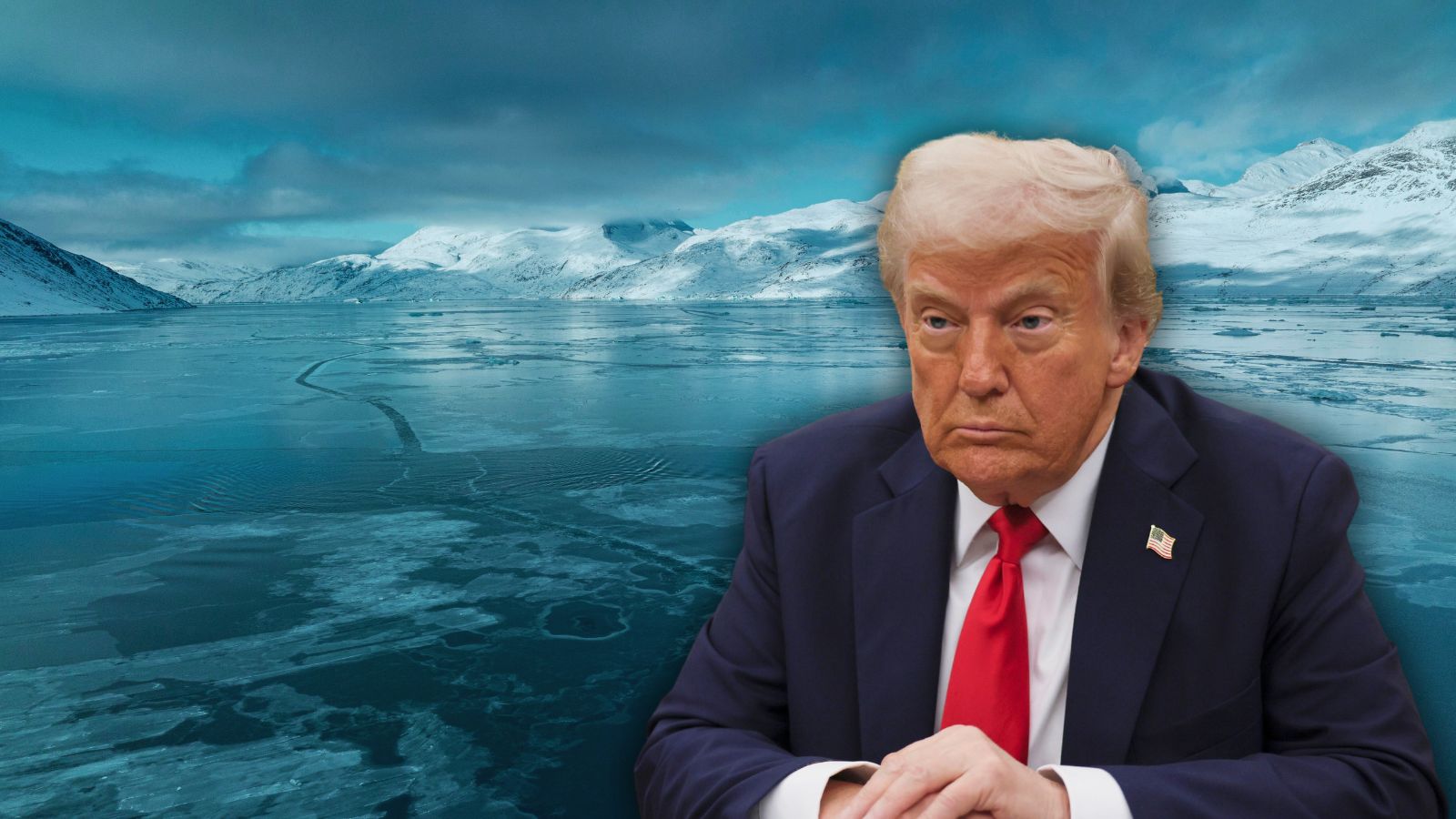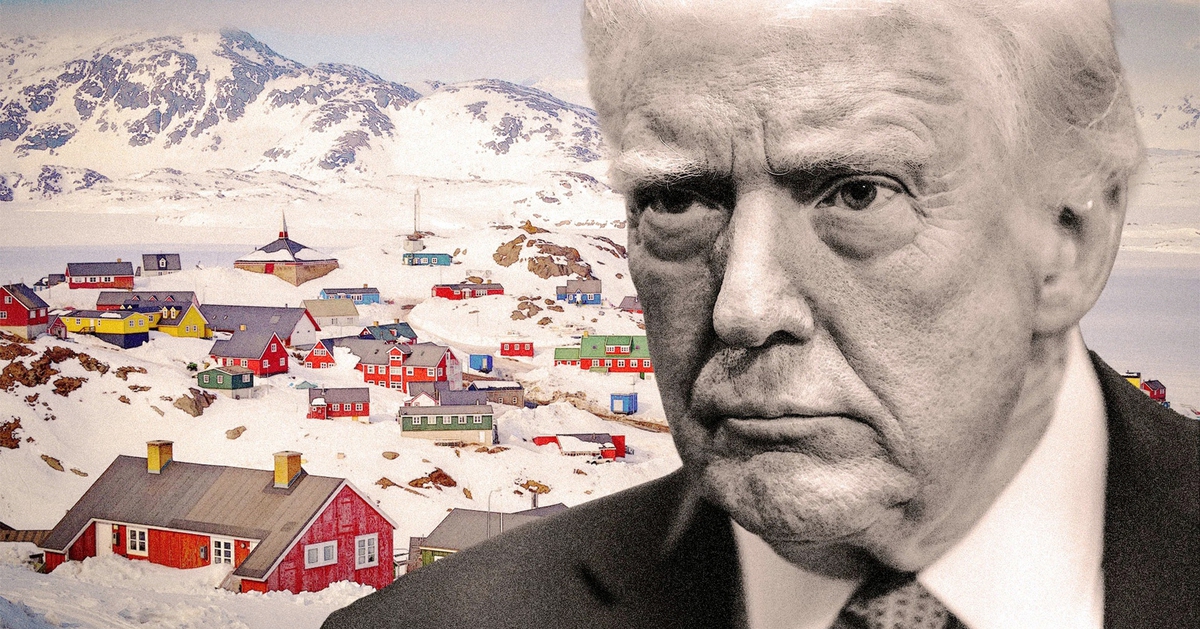In an extraordinary escalation of geopolitical tensions, the White House has directed U.S. intelligence agencies to ramp up surveillance efforts against Greenland, signaling a renewed push for the acquisition of the vast island territory.
Surveillance satellites, ground agents, and communication intercepts are among the tools now deployed to monitor Greenland’s independence movement and attitudes toward American resource extraction on the island.
This dramatic move is one of the first tangible steps taken by President Donald Trump’s administration toward fulfilling his longstanding and controversial goal of acquiring Greenland—a strategic piece of real estate in the Arctic that has long attracted American interest.
The directive, which was issued last week under the auspices of Director of National Intelligence Tulsi Gabbard, reportedly ordered intelligence agencies to focus on understanding the political dynamics surrounding Greenland's relationship with Denmark and its future prospects for independence.
The classified "collection emphasis message" instructs U.S. agencies to identify and track individuals in Greenland and Denmark who support U.S. objectives for the island.
While the details of the operation remain classified, it is clear that the United States is now using its intelligence apparatus to engage in covert operations in Greenland, intensifying its efforts to secure control of the island’s immense resources and strategic position.
In a time when espionage and intelligence operations are typically confined to more conventional targets—such as rival states and terrorist organizations—this move raises eyebrows for its focus on Greenland, an autonomous region of Denmark.
Critics are already labeling it an overreach, questioning the justification for such an extensive intelligence operation, particularly one centered on a NATO ally.
The seemingly absurd notion of U.S. surveillance targeting polar bears and conducting covert operations to infiltrate local populations has prompted mockery, with some joking that it’s only a matter of time before the U.S. begins wiretapping Arctic wildlife.
Yet, beneath the satire lies a serious geopolitical objective: President Trump’s desire to annex Greenland. In the past, Trump has expressed an unrelenting interest in acquiring the island, citing its strategic value, its vast natural resources, and its location in the Arctic.
For years, Trump has flirted with the idea of purchasing Greenland, and his administration has made a series of overtures toward Denmark, the country that currently administers Greenland, attempting to strike a deal for the territory.
However, Denmark has rejected all offers, with Greenland’s leadership also voicing firm opposition to any notion of U.S. ownership.
Despite the resistance, Trump’s enthusiasm for acquiring Greenland has remained unabated. In a joint address to Congress earlier this year, Trump made it clear that Greenland’s acquisition was high on his agenda.
“We need Greenland for national security and even international security, and we’re working with everybody involved to try and get it,” Trump declared. “One way or the other, we’re going to get it.”
His statement, delivered in the midst of a national address, highlighted his administration’s unyielding pursuit of Greenland, treating it as though it were a real estate deal waiting to be completed.
This pursuit has long been a source of tension between the U.S. and Denmark, with the Danish government firmly rejecting any discussions of selling Greenland to the United States.

Danish Prime Minister Mette Frederiksen has been vocal in her opposition to the idea, calling it “absurd” and “unrealistic.” Greenland itself, which has a population of just over 56,000 people, has consistently emphasized its desire for greater autonomy and independence from Denmark, with many of its residents viewing any attempt to hand the territory over to the U.S. as a betrayal of their sovereignty.
Nevertheless, the Trump administration appears undeterred. The recent directive to intelligence agencies suggests that Trump’s ambitions for Greenland have evolved beyond mere rhetoric and into concrete action.
The collection of sensitive intelligence on the ground in Greenland and Denmark is not only an unusual move but also a direct challenge to the international norms surrounding national sovereignty and privacy.
It raises questions about the legality and ethics of conducting intelligence operations on an allied country, particularly when the country in question has not consented to such surveillance.
The decision to employ U.S. intelligence agencies in this manner also highlights the broader tensions within the U.S.-Denmark relationship, as well as the role of the Arctic in global geopolitics.
The region’s significance has grown in recent years as climate change has opened up new shipping routes and increased access to previously untapped natural resources.
Greenland’s vast reserves of minerals, oil, and natural gas have become a focal point for nations seeking to secure access to these resources, with the U.S. and China both vying for influence in the region.
For the Trump administration, Greenland represents more than just a piece of land—it symbolizes a strategic foothold in the Arctic and a potential gateway to valuable resources.

The desire to secure Greenland’s resources, as well as its strategic location, fits into Trump’s broader vision of securing U.S. dominance in key geopolitical regions.
The island’s location between North America and Europe also offers the U.S. a significant military advantage, making it an invaluable asset from a defense and national security standpoint.
In response to the growing pressure from the U.S., Danish and Greenlandic officials have repeatedly rejected any attempts to sell or transfer ownership of Greenland.
The Danish government, in particular, has emphasized that Greenland is not for sale and that the issue of the island’s future is a matter for its people to decide.
While Greenland has been granted significant autonomy in many areas, it remains a part of the Kingdom of Denmark, and any decision regarding its sovereignty would require the consent of the Danish government.
Despite these rejections, Trump’s administration has continued to push forward with its efforts to secure Greenland, and the recent intelligence directive suggests that the U.S. is willing to employ a wide range of tactics to achieve its goal.
The use of intelligence agencies to gather information on Greenland’s political climate and its citizens’ attitudes toward American resource extraction is a clear indication of the lengths the Trump administration is willing to go to in pursuit of its objectives.
The backlash to the U.S. surveillance effort has been swift, with critics accusing the Trump administration of overstepping its bounds and engaging in a form of modern-day imperialism.

The notion of spying on Greenland and its citizens has sparked outrage among those who see it as a blatant violation of sovereignty and privacy. The idea that the U.S. could resort to wiretapping polar bears or sending in covert operatives to blend in with local populations is a grotesque exaggeration, but it serves to underscore the absurdity of the situation.
As the Trump administration continues to push for control over Greenland, the international community is watching closely. The use of intelligence agencies to conduct surveillance on a NATO ally raises serious questions about the ethics and legality of such operations, as well as the broader implications for global diplomacy.
Greenland’s future remains uncertain, but one thing is clear: the U.S. is willing to go to great lengths to secure its interests in the Arctic, no matter the cost.
The situation is made all the more complicated by the presence of competing global powers, such as China and Russia, that have also shown interest in the Arctic region.
The race for influence in Greenland is part of a larger geopolitical contest for dominance in the region, where access to natural resources and strategic positioning will be critical in the coming decades.
For the U.S., securing Greenland could be seen as a critical step in maintaining its global power and influence.
In the meantime, the people of Greenland and Denmark continue to resist the pressure from the U.S. to cede control over the island. Greenland’s quest for independence and its desire to maintain its sovereignty remain at the forefront of the debate, while the U.S. intensifies its efforts to gain a foothold in the Arctic.

The outcome of this geopolitical struggle will have far-reaching consequences, not just for the U.S. and Denmark, but for the future of the Arctic itself.





